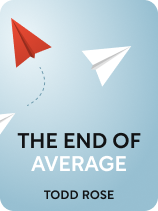

This article is an excerpt from the Shortform book guide to "The End of Average" by Todd Rose. Shortform has the world's best summaries and analyses of books you should be reading.
Like this article? Sign up for a free trial here.
What purpose are schools designed to achieve? Why are many education systems standardized?
According to Todd Rose, schools are designed to find intelligence, not create it. Standardized education sorts students by giftedness rather than helping them fulfill their potential.
Read more to learn about the pitfalls of standardized education.
Standardized Education
According to Rose, standardized education serves a purpose, but that purpose is not pure education. He argues that schools fail to nurture students as individuals because they were designed to achieve an entirely different purpose: sorting students. Rather than educate each student to help them reach their full potential, as it’s ostensibly supposed to do, our education system is designed to identify and support “gifted” students. That is, it allocates better opportunities to children with the preexisting potential to learn how to solve complex problems. In turn, the system provides less support to those without such potential.
This model has its roots in the beginning of the 20th century, when early American factories needed to identify capable students who would eventually become factory managers. It quickly spread to industrialized nations around the world.
(Shortform note: Some experts contend that, beyond sorting gifted students from non-gifted students, this early education system was designed to teach compliance to students who would become factory workers. Before industrialization, most American workers were farmers and artisans entirely in charge of their own work. When these workers moved to factories, they had to follow a superior’s instructions and work according to someone else’s schedule for the first time. Thus, public education was designed to get children accustomed to following instructions and a rigid schedule.)
Rose explains that this education system is supposed to benefit society by channeling the most gifted students into the best, most prestigious schools. Eventually, these students end up in the most important jobs, where they can do the most good for society.
To accomplish this, this education system judges how talented each student is by comparing them to the average student: Schools teach the same fixed curriculum to all students and conduct standardized tests to measure which students are best able to learn that curriculum. In the process, students who score below average end up at a disadvantage when trying to get into good schools and high-skill jobs.
(Shortform note: In Excellent Sheep, William Deresiewicz contends that the standardized tests schools use to sort students are biased toward students from upper-class backgrounds. He argues that these students can afford more test preparation resources and attend better-funded schools that prepare them well for these tests. This means that fewer students from lower-income families have the opportunity to attend elite schools, even if they have more potential to flourish in the workforce. In other words, the education system fails as a sorting mechanism.)
Why Standardized Education Is Bad at Sorting Intelligence
Rose believes that our system keeps the best education and jobs away from those who lack academic success. In theory, this downside is balanced out by the system’s positive impact on society—everyone is better off if society’s important jobs are filled by the most talented people. However, Rose also contends that the system doesn’t accomplish this purpose very well.
According to Rose, our education system is a deeply flawed sorting mechanism because it’s founded on the false assumption that “general intelligence” exists. We use standardized tests because we assume that students who are better at quickly solving math problems or reasoning through logic puzzles are generally “smarter” than others. In other words, we think they’ll be better at solving all problems than their less “gifted” counterparts. Instead of judging students based on individual skills, we average out their various skills into one-dimensional scores that supposedly reflect their general intelligence.
However, research shows that such scores of general intelligence are completely inaccurate. Rose argues that if you ever judge someone as “generally smart,” you’re probably mistaken. That’s because someone who’s good at one intellectual task (for instance, analyzing literature) is no more likely than anyone else to be good at another intellectual task (say, interpreting statistics). For this reason, a student’s standardized test scores or grade point average don’t reliably predict their performance at other tasks, or in their future career.
Thus, our educational system only gives the best opportunities to students who are good at particular narrow skills, such as standardized testing, and it needlessly disadvantages students who lack these narrow skills.
Rose notes that this system isn’t totally unsuccessful at sorting. A high-scoring student is somewhat more likely to do well in college and the workforce than a low-scoring student. However, this benefit comes at a cost to individual students, who may lack opportunities because they don’t fit the mold. If a student is gifted in ways a standardized test can’t measure, the system incentivizes them to struggle to succeed in the same way as everyone else instead of nurturing the talents they have. This is not only demoralizing for individuals, but also damaging to society at large, as it leaves the labor pool full of underutilized talent.
(Shortform note: How might we overhaul the education system to better support individuals with talents other than those measured by standardized tests? Some charter schools across the US are experimenting with personalized learning programs, in which teachers meet one-on-one with students to choose unique learning goals rather than sticking to a uniform curriculum. As early as middle school, students choose “capstone” projects that allow them to apply their unique skills in an area that interests them. In theory, this system sorts students into career paths where they can do good for society much more effectively than our current system: Students choose the problems they’re the most capable of solving and motivated to solve.)
| The IQ Debate The question of standardized tests’ validity is closely tied to that of IQ tests. The two types of tests are very similar in content, and SAT scores very accurately predict the results of IQ tests. Both tests purport to measure general intelligence, and they’re both the subject of fierce debate. Contrary to what Rose claims, some argue that empirical data prove that IQ is a valid way to measure general intelligence. For instance, a meta-analysis of multiple decades’ worth of studies found that IQ is the most accurate predictor of job performance in a wide variety of fields, ahead of any personality traits or specific abilities. Even among workers with over a decade of experience in their given fields, differences in IQ accurately predict job performance. If general intelligence doesn’t exist (as Rose claims) and IQ just reflects the narrow skills relevant to standardized tests, we’d expect workers with equal amounts of honed skills to generate equal results, even if they have different IQs. On the other hand, some challenge the validity of the data linking IQ to general success. They argue that there are too many inconsistent variables involved in any study of IQ for it to yield any definitive conclusions. For example, “job performance” is a largely subjective metric—different managers may vary wildly in the way they judge an employee’s performance. Collecting these subjective, semi-arbitrary numbers and measuring how well they correlate with IQ would prove nothing. Opponents of IQ tests argue that social scientists are just interpreting arbitrary data to support their preexisting narrative of general intelligence. |

———End of Preview———
Like what you just read? Read the rest of the world's best book summary and analysis of Todd Rose's "The End of Average" at Shortform.
Here's what you'll find in our full The End of Average summary:
- How treating students as individuals can unlock their potential
- Why companies can profit by hiring employees from unique backgrounds
- The three ways that schools fail to treat students as unique individuals






